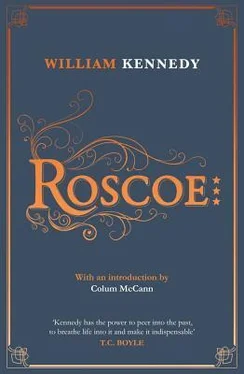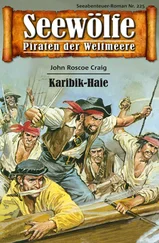An organist moved through a five-noted chant and then a glissando of the first two bars of “America,” pausing on a long note, and then he began a second chant. Elisha interrupted the organist, returning to the anthem. “My country, ’tis of thee,” he sang, with might in his voice, and every head turned to see this intruder continue with “Sweet land of liberty, / Of thee I sing. ” The organist followed Elisha, and the solemnizers of peace joined him, the familiar music and words stirring their souls as the splendid pipes of this chorister from nowhere arced into the vault of the nave; and when the verse ended and the silence longed to explode into applause, Elisha continued with a little-known verse: “Let music swell the breeze, / And ring from all the trees / Sweet freedom’s song. ”
People applauded with simple nods and uncontrollably weepy smiles, all of them climbing down from the ramparts, linked by the newness of this peace that also needed leadership, affirming that Elisha had spoken aloud the very prayer they’d all been seeking in silence, the marrow of patriotic holiness achingly evoked by this saloon tenor whom Roscoe had never before known to sing solo in church, or sing so well in any saloon anywhere.
“Bravura performance,” Roscoe said as they went out onto State Street.
“Cheap chauvinism,” said Elisha. “I couldn’t help myself. It was like having holy hiccups.”
“You underrate your achievement. My blood cells turned red, white, and blue.”
“Don’t hold it against me. Remember that the kamikazes are still out there, and the war criminals will cut themselves in two rather than face the music.”
“Kamikazes? War criminals?”
“Don’t forget I said this.”
They walked to the Albany Garage, where Roscoe housed his two-door 1941 Plymouth, and they headed for Tivoli to rendezvous with Veronica, an upgrading of life for Roscoe just to see her. But as he drove, distracted, perhaps, by the gin, or by seeing Trish as a soldier-and-sailor sandwich, or relief at being rid of her, or by going public with his plan to quit politics, he began playing eye games with moving vehicles, blanking them out with his right eye, then his left, eliminating them entirely by closing both eyes.
“Why are you closing your eyes while you drive?” Elisha asked.
“I’m playing Albany roulette.”
“Let me out.”
“You’ll be home in ten minutes.”
“Playing games with death. You really are in trouble.”
“I’m all right.” But he kept closing one eye, then the other.
“This is a form of suicide,” Elisha said. “Is that your plan?”
“No. Not my style.”
“It’s everybody’s style at some point. And if you kill me while you’re at it, that’s murder.”
“Not at all my style,” Roscoe said.
“Open your eyes and listen to me. I’m the one who’s quitting, not you.”
Roscoe braked instantly and swerved to avoid sideswiping an oncoming trolley car, then climbed a curb and struck a small tree. The impact was light, but it drove the steering wheel into the deep folds of Roscoe’s abdomen and threw Elisha into the windshield. Blood instantly gushed, and Elisha pressed his pocket handkerchief onto his forehead.
“Let me see that,” Roscoe said, and when he saw the wound he said, “Stitches.”
He backed the car onto the street and drove to Albany Hospital. They both could walk to the emergency room, which was accumulating assorted brawling louts and burn victims and skewed drivers like Roscoe, all celebrating peace with blood and fire and pain. As a nurse started to take Elisha off to stanch his bleeding, Roscoe asked, “What’s this quitting stuff?”
“Believe me, it’s real,” Elisha said. “Unless you want to give Patsy a heart attack, don’t you run off just yet.”
“What the hell are you talking about?”
“I’m doing a fadeaway,” Elisha said. “Time’s up.”
“Suddenly there’s a retirement epidemic,” Roscoe said. “Do you suppose the Japs put something in our drinking water?”
He felt new pain in his stomach, and his head ached from the resurrection of old doubt. You think you’ve done something radical and it turns out you’ve done nothing at all.
Roscoe recognized a nun sitting in the next bay of the emergency room, Arlene Flinn from Arbor Hill, a Sister of the Sacred Heart, hundred and one pounds, tiny, dark-haired, sharp-nosed beauty in adolescence, when Roscoe had a crush on her. Those once-spunky eyes were now reshaped behind spectacles, her hair hidden under her starched wimple.
“Arlene?” he said. “Is that you?”
“Oh, Roscoe,” she said. “Roscoe Conway.”
Her tone of voice suggested to Roscoe that she remembered the day he caught her in his arms and kissed her by the holy-water fountain in St. Joseph’s Church. Two days later she went off to the nunnery — the beginning of your control over women, Ros.
“Are you ill, Arlene?” he asked her.
“A toothache,” she said. “The pain is horrible.” She was humming something that sounded like a Benediction — hymn—“O Salutaris,” was it?
“How’s your father?” he asked.
“Oh dear, my father,” Arlene said. “He died six months ago.”
“I didn’t know. I never saw it in the paper.”
“He died in Poughkeepsie. My brother didn’t want it publicized.”
“I knew he was down there. I’m sorry, Arlene.”
“He hated all you politicians,” she said. “Especially Patsy McCall.”
“We offered him anything he wanted when he came out of jail. He wouldn’t talk to us.”
“Could you blame him?”
Roscoe chose not to answer. Arlene’s father, Artie Flinn, had been the chief plugger for the Albany baseball pool, which Patsy ran. The federal DA indicted Artie when he was caught with plugged pool sheets and heavy money, and he got six years, the scapegoat. Patsy took care of Artie’s wife and family while Artie was inside, but Artie came out Patsy’s enemy. Also, he went strange, took to jumping off tall buildings into the river, holding the pet pigeon he brought home from jail, and letting the pigeon go before he hit the water. People told him he could fly like his pigeon, but in one jump a piece of sunken metal sliced off part of his left leg. He believed the leg would grow back, and when it didn’t, he punched holes in it with an ice pick and had to be put away.
“I see your brother Roy from time to time,” Roscoe said.
“I don’t see him,” Arlene said. “I don’t approve of that newspaper he runs. It’s scandalous. Roscoe, where’s that dentist? I can’t stand this pain.”
“Have a swig of this and hold it on the tooth.” He handed her his flask of compassionate gin.
She held the gin, then swallowed it, took a second, squidged her cheek and held it, swallowed it, “Sweet Mother, Roscoe, this doesn’t help a bit,” then a third gin, and he told her to keep the flask as they took him for X-rays of his rib cage.
“When are you going to get this holy woman a dentist?” Roscoe asked the nurse.
“He’s on the way,” the nurse said.
Roscoe’s X-rays were negative, and a young intern suggested an ice bag for his stomach and gave him a packet of pills for his blood pressure. “You’ll be sore, but nothing’s broken and we don’t see any bleeding.”
Roscoe saw Veronica standing by a half-open curtain in the bay where Elisha lay on a stretcher. Her long blond hair was wrapped into a quick knot at the back of her head, she wore no makeup and was barelegged in low heels and a candy-striped summer dress. Roscoe thought she looked sublime.
“What’s the verdict?” he asked her.
She kissed his cheek. “They’re taking him upstairs for the stitches. How are your bruises?”
Читать дальше












